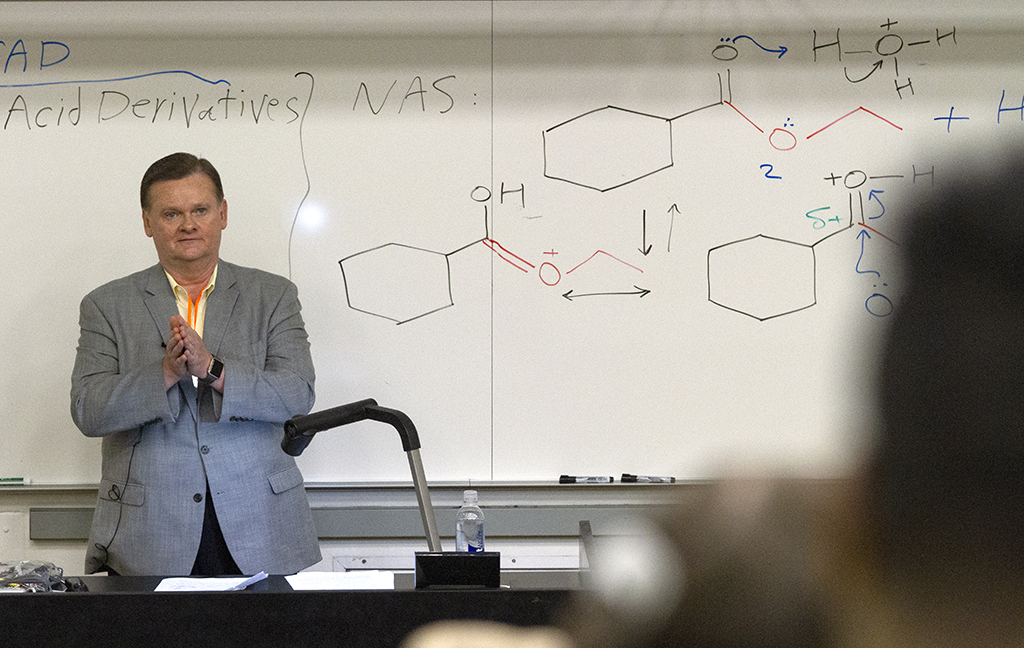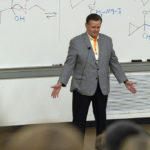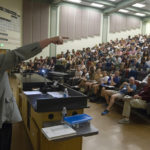Sound advice from the Mega Workshop
By Bradley Wilson, CMR Managing Editor
When it came to the opening of the College Media Mega Workshop in Minneapolis, Joe Hight asked the 350 or so students what they all have in common.
Quickly, the students stated the obvious.
- We tell stories
- We all individually tell stories
- We have deadlines
- We’re nosey. We’re curious as well.
- We’re skeptical.
- We follow a set of ethical standards
- We’re passionate. When you lose that passion that’s when u go into cynicism.
- We’re here for the truth. People wonder what the truth is these days.
- We’re tough. Only heard three or four of you say yeah.
- We ask the tough questions.
Then Hight turned the talk into what he really wanted students to start thinking about.
He asked, “I’ve always learned how journalists are resilient. Is that a myth?”
Hight was the editor of The Gazette in Colorado Springs when Dave Philipps and the news organization won the Pulitzer Prize in 2014 for its “Other Than Honorable” series about the plight of soldiers suffering from PTSD and traumatic brain injuries who were being kicked out of the Army without benefits.
And he led the team of reporters and editors who covered victims of the Oklahoma City bombing.
He talked about his coverage of the 1986 Edmond post office shooting and the 1999 tornado outbreak in which more than 50 died.
“Those stay with me,” Hight told the packed house. “But what else has stayed with me is those ones. The oilfield worker who was cut in half in a an oil rig in Oklahoma. The shooting victim in Lawton. The accident victim in his car. … The suicide. … The one I remember most was a fellow journalism student. He and two other of his coworkers were basically taken into an ice locker and executed.”
Hight said it was the Oklahoma City bombing, a truck bombing committed by a domestic terrorist in 1995, that forced him to think about the impact such coverage has on journalists.
“We didn’t understand what PTSD was, but the impact was there.”
He pointed to war correspondents such as Ernie Pyle who wrote in a 1944 column, “I do hate terribly to leave right now, but I have given out. I’ve been immersed in it too long. My spirit is wobbly and my mind is confused. The hurt has finally become too great.”
Or photojournalist Kevin Carter who won the Pulitzer Prize in April of 1994 and committed suicide on July 29. Carter left a suicide note that read: “I’m really, really sorry. The pain of life overrides the joy to the point that joy does not exist…depressed … without phone … money for rent … money for child support … money for debts … money! … I am haunted by the vivid memories of killings & corpses & anger & pain … of starving or wounded children, of trigger-happy madmen, often police, of killer executioners… .”
Then Hight made his point: “We have to think about how we cover victims. We have to think about the community we cover.”
It goes beyond covering the news and then forgetting about it.
“The problems can become overwhelming,” he said. “Seek help with your stress.”
First, he said, journalists need to understand how stress affects them. Then he said, journalists, just like first responders, need to spend a few minutes or hours away from the job. Then, find someone who is a sensitive listener. He suggested that journalists attend a church, find an activity or play a sport.
“It’s all about balance,” Hight said. “Find a way to laugh.”

Peach Norman Owen, a photographer with the Albion College student newspaper, The Pleiad, said there were several take-home lessons from what Hight said.
“You can’t hide behind the camera, you have to be willing to put yourself out there. There is trauma in journalism, and it’s not unusual to have PTSD as a journalist,” she said.
-
Take care of yourself.
-
Push yourself and put yourself out there but don’t let yourself take on too much.
-
Be mindful of the people you’re working with. People you’re working with are people, not just sources.
-
You’re allowed to let the things you cover, affect you.
-
Set limits.
-
It’s not if, it’s when.






